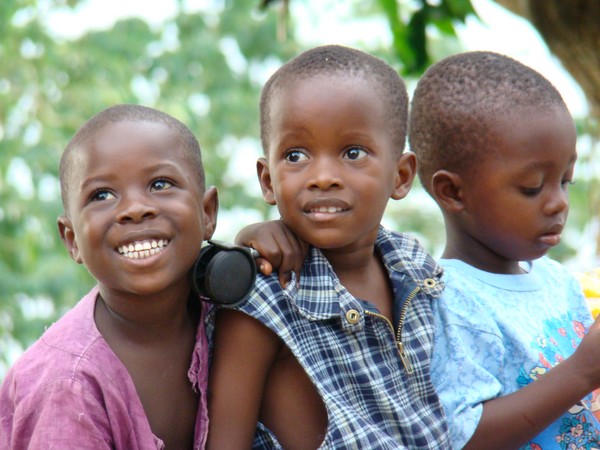Interpeace's Platform 4 Dialogue and Peace goes national in Liberia

Joint Programme Unit for UN/ Interpeace Initiatives (JPU) expands across Liberia while Nimba County programme continues.
After the success of the pilot reconciliation project in Nimba County last year, the Liberian Ministry of Internal Affairs was eager to see the same Interpeace approach applied on a wider scale. The national roll out of the programme started in April while the Nimba County project continues to build on the work of 2008.
Working closely with the Peace Building Office to create synergies with other initiatives
The Joint Programme Unit for UN/Interpeace Initiatives (JPU), an operational arm of the UN supporting peacebuilding initiatives in the field using the Interpeace approach, has been working closely with the Peace Building Office of the Ministry of Internal Affairs in Liberia to plan the national roll out. The focus has been to tailor the programme so that it will also work in synergy with other peacebuilding actors across the country. This has been achieved while meeting the overall objectives of the programme - to increase positive social and political cohesion by building the capacity of both state and non-state players to resolve conflicts.
8 partners selected for implementation
The programme will be implemented across Liberia by a team that is 100% Liberian. In order to foster national ownership, the team is partnering with 8 civil society organizations for the national implementation.
The partners are:
· Liberia Democratic Institute (LDI)
· West Africa Network for Peacebuilding - Liberia Chapter (WANEP)
· Initiative for Positive Change (IPC)
· Peacebuilding Resource Centre (PRC)
· Kofi Annan Institute for Conflict Transformation (KAICT)
· Foundation for International Dignity (FIND)
· Women NGO Secretariat for Liberia (WONGOSOL)
· Inter Religious Council of Liberia (IRCL)
An approach that will create a sustainable infrastructure to building lasting peace in Liberia
By partnering with 8 civil society organizations, the programme will be tapping directly into existing local knowledge and skills. The programme will also contribute to the development of local capacities by creating an arrangement that allows for the transfer of knowledge and skills to the Ministry of Internal Affairs and to the 8 partners and therefore into civil society. The approach, methods, and tools, including the Interpeace approach to research and dialogue for peace, will be shared thereby helping to create a sustainable Liberian infrastructure capable of building lasting peace.
Dealing with conflict through dialogue and collaborative action
The planned impact of this two year initiative is that there will be better capacity amongst both state and non-state players, and at all levels of society, to deal with conflict through dialogue and collaborative action. Drawing on the experience of the Nimba pilot project last year and over 15 years of Interpeace fieldwork it is expected that at the end of the two years there will be:
· broad national consensus around a strategy addressing key challenges for consolidation of peace in Liberia
· a strong network of key social and political players engaged in effective dialogue and collaborative action
· improved attitudes and behaviors in a core group of social and political actors
· a core of institutions in state and society that can provide technical support and assistance to the implementation of action-oriented dialogue processes
· reconciliation in Nimba County strengthened through collaborative action between state and society
The national programme is a result of the success of the Nimba County pilot
The results of Interpeace's project on inter-ethnic reconciliation in Nimba County were finalized and presented to the national authorities at the County Conference in Ganta, Nimba County. It was the culmination of the six month emergency project and was attended by over 200 people from all groups of society. For the full report click here.
Speaking at a pre-County Conference meeting on behalf of Nimba Superintendent Robert Kamei County Inspector, Honorable Thomas Q. Suah indicated that unlike other interventions, Interpeace's approach had a distinct quality, its methodology being not only multi-faceted but also participatory.
Interpeace approach was credited for being multi-faceted and also participatory in Nimba
Call for extension of the Nimba project
During the Conference the citizens of Nimba County in Liberia also expressed their great satisfaction with Interpeace's work and requested for the project to be extended beyond the original deadline.
The Ministry of Internal Affairs working on specific recommendations
The Ministry is considering the best way to follow up on some of the recommendations that came out of the Nimba County Reconciliation Programme, for example the designing of fast track initiatives that would be deployed on the ground to help avoid losing the momentum for peace developed in the Pilot initiative.
